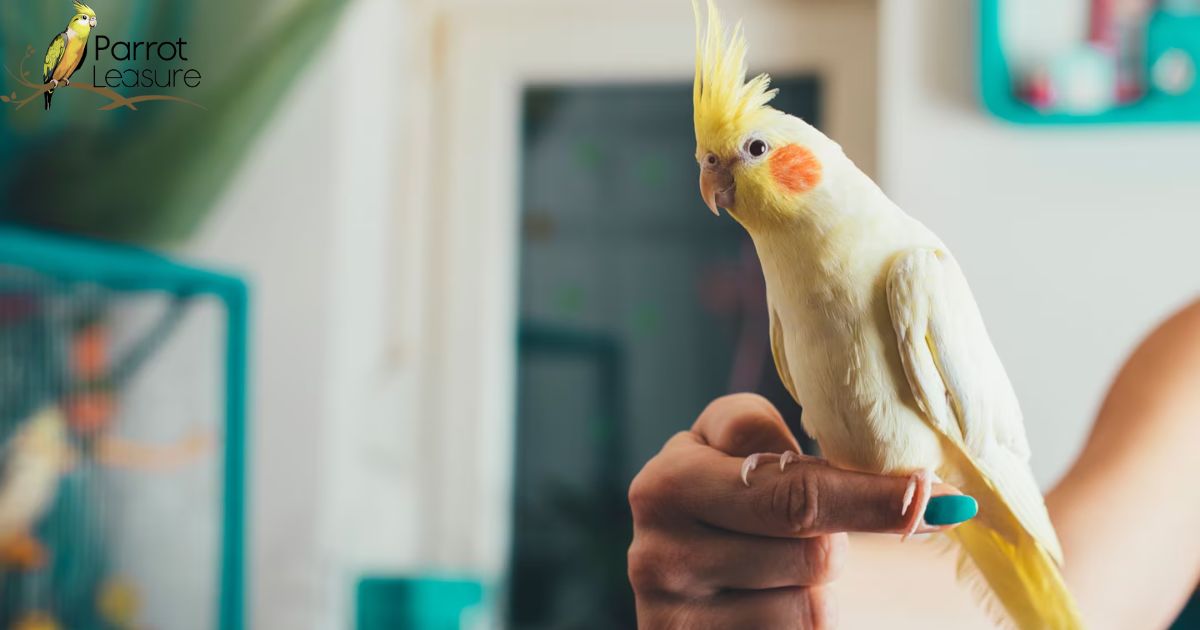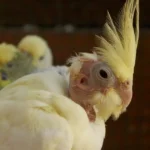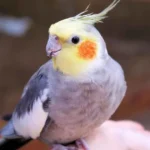Cockatiel health care is about keeping your bird bright and lively. It includes regular vet visits, a nutritious diet, and careful monitoring for any signs of illness. It’s the key to a long, happy life for your pet.
Are you curious about How Often Should a Cockatiel Go to the Vet? This question is more than just a query, it’s a gateway to understand the importance of routine check-ups, and every responsible owner should consider it. Please stick with us to discover why regular check-ups are crucial for your cockatiel’s health.
Regular vet visits for your cockatiel are not just about vaccinations or illness management. They are comprehensive health evaluations that can detect issues early and provide dietary and care advice to keep your bird in prime condition.
Understanding Your Cockatiel’s Health: The Basics
Understanding your cockatiel’s health starts with recognizing their natural behaviors and needs. A healthy cockatiel is active, alert, and maintains a steady appetite. They require a balanced diet, consisting mostly of quality pellets and fresh vegetables, with occasional fruits and treats.
Regularly observing your cockatiel can help you notice any changes that may indicate health issues. Signs of good health include bright eyes, clean feathers, and active engagement with their environment. Providing a spacious cage and opportunities for mental stimulation will also contribute to their overall well-being.
The Frequency of Vet Visits for Your Cockatiel
Cockatiels, like all pets, need regular vet check-ups to stay healthy. Experts recommend taking your cockatiel to the vet at least once a year for a thorough examination. This helps catch any health issues early, ensuring your bird remains in good shape.
For young cockatiels or those with health concerns, more frequent visits may be necessary. Twice a year is advised for birds under one year old to monitor their development and address any concerns promptly. Regular vet visits are a cornerstone of responsible cockatiel care.
Cockatiel Checkups: What to Expect at the Vet
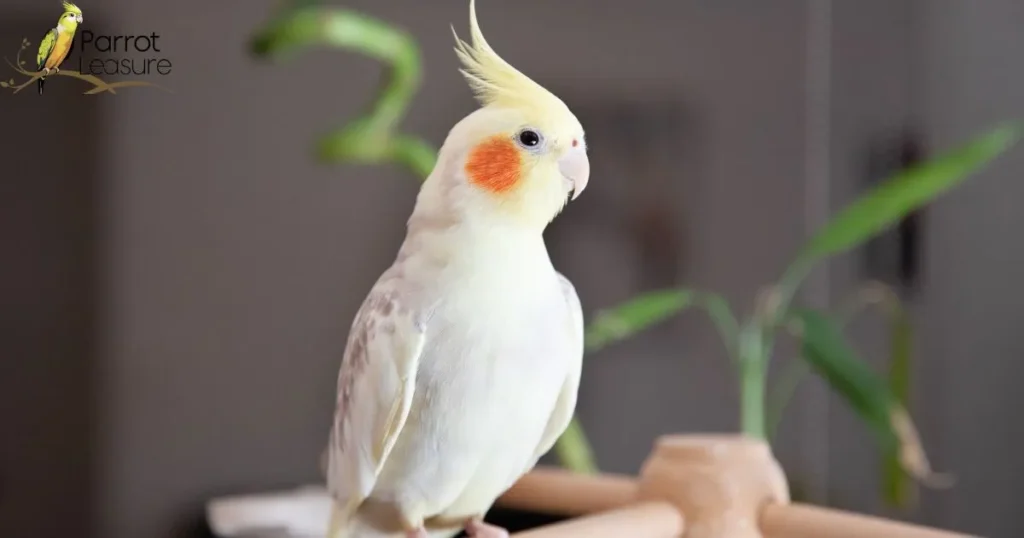
At a cockatiel checkup, expect a comprehensive physical examination. Your vet will inspect your bird from beak to tail feathers, assessing overall health. They’ll check weight, eyes, and plumage for signs of good condition.
Your vet may also perform blood tests and analyze droppings. These tests provide insights into your cockatiel’s health beyond what’s visible, ensuring any issues are caught early and treated effectively.
The Importance of Regular Vet Visits for Cockatiels
Regular vet visits are crucial for your cockatiel’s health. They ensure early detection of potential issues, often before symptoms appear. A vet can offer tailored advice on diet and care, keeping your bird at its best.
These check-ups also build a health history for your cockatiel. This is invaluable for tracking changes over time and making informed decisions about your pet’s well-being. So, prioritize those vet appointments for a happy, healthy cockatiel.
Cockatiel Nutrition and Its Role in Vet Visits
Cockatiel nutrition is pivotal for preventing health issues that could lead to vet visits. A balanced diet for a cockatiel includes pellets, seeds, vegetables, and fruits. Pellets should form 40% of their diet, providing essential nutrients and vitamins.
Proper nutrition reduces the risk of diseases and supports overall health, making vet visits more about routine check-ups than emergencies. Fresh foods, calcium, and a seed diet are crucial for a cockatiel’s well-being. Always ensure your cockatiel has access to a variety of foods to meet their dietary needs.
Related post: Can Cockatiels Talk?
Recognizing Signs Your Cockatiel Needs a Vet
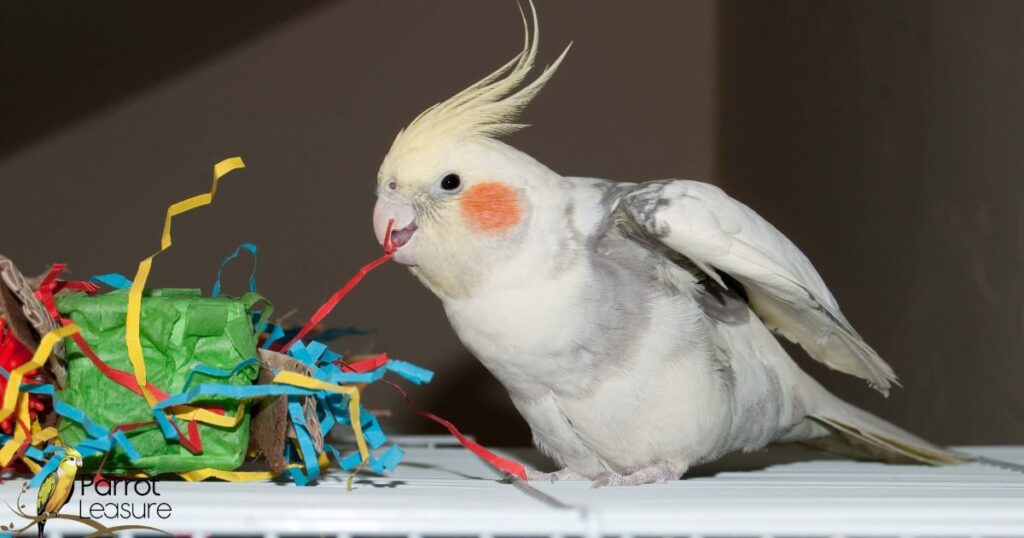
When your cockatiel’s behavior changes, it’s a signal they may need a vet. Watch for less playfulness, reduced singing, or a drop in energy levels. Changes in appetite or thirst are also red flags. A cockatiel that’s not eating or drinking normally could be unwell.
Look out for unusual droppings or respiratory issues, as these can be serious. If your cockatiel shows labored breathing, nasal discharge, or lime-green droppings, seek veterinary care immediately. These signs can indicate infections or other health problems that require professional attention.
Preparing Your Cockatiel for a Stress-Free Vet Visit
To ensure a stress-free vet visit for your cockatiel, familiarize them with their carrier. Place it in their living area with the door open, add cozy bedding, and occasionally drop in treats. This makes the carrier a safe, welcoming space for your bird.
On the day of the vet visit, maintain a calm demeanor to help your cockatiel stay relaxed. Speak softly and move gently. Covering the carrier with a light cloth can also help minimize stress during the journey.
The Cost of Cockatiel Vet Visits and Budgeting Tips
The cost of cockatiel vet visits can vary, but budgeting around $50 to $100 per year for routine check-ups is a good starting point. This includes general health assessments and may cover basic vaccinations or treatments.
To manage these costs effectively, consider setting aside a small monthly amount specifically for your cockatiel’s healthcare. This way, you’re prepared for both regular visits and any unexpected health issues that may arise.
After the Vet: Cockatiel Care Post-Visit
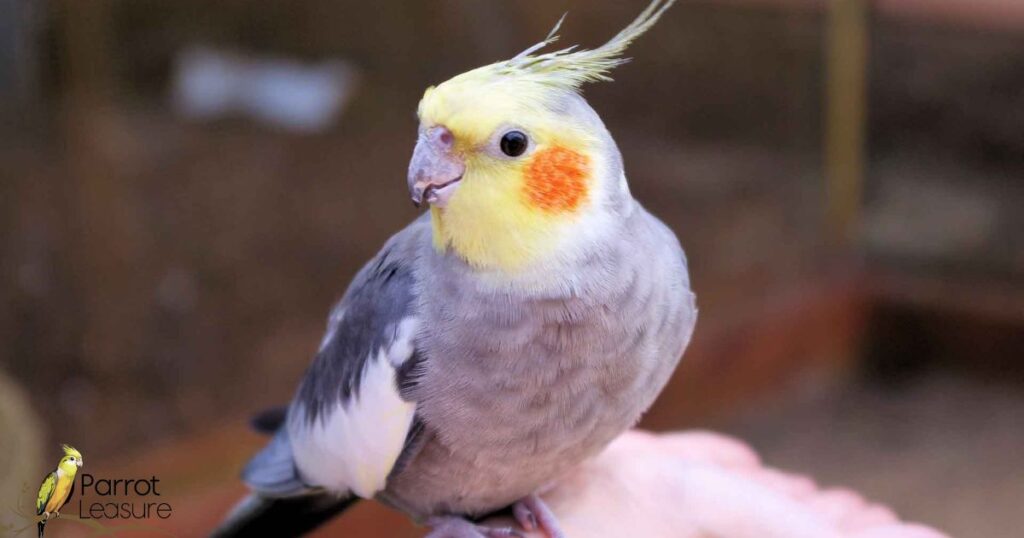
After a vet visit, your cockatiel may need some time to settle back in. Provide a quiet, comfortable space for them to rest. Offer their favorite treats and ensure they have fresh water and food available to help them feel secure.
Monitor your cockatiel for any signs of stress or discomfort following the visit. Gentle interaction and soothing talk can help reassure them. If any medications were prescribed, follow the vet’s instructions carefully to support their recovery.
Building a Long-Term Health Plan for Your Cockatiel
Building a long-term health plan for your cockatiel ensures a vibrant life. Start with a balanced diet, including pellets, seeds, and fresh produce. Regular vet visits are essential to monitor health and catch issues early.
Incorporate daily exercise and mental stimulation into your cockatiel’s routine. Clean living conditions and a loving environment also contribute to their longevity. Stick to this plan, and your cockatiel can enjoy a healthy life for years to come.
FAQ’s
How do I know if my cockatiel is healthy?
A healthy cockatiel will exhibit certain qualities, including: Dry and open nares. Smooth beak. Eyes that are clear and bright and have no discharge.
How often should I interact with my cockatiel?
Spend at least 1 hour a day holding or playing with your cockatiel. Cockatiels love to get out of their cages and perch on a T-stand.
What does a sick cockatiel look like?
The typical signs of a sick bird are often referred to as the ‘sick bird look’ or SBL. This is typically a bird that is quiet, eyes closed and feathers fluffed up.
What is a bad cockatiel behavior?
Noisy Repetitive Contact Calls & Excessive Screeching. Cockatiels will instinctively call out repeatedly (contact call) when they are alone and out of visual contact with another bird or their owner.
Final Thoughts
Regular vet check-ups are essential for your cockatiel’s health. Aim for at least one visit annually, or more if recommended by your vet. This ensures your feathered friend stays happy and healthy.
